Deanshanger had excellent transport links: the Buckingham Arm of the Grand Union Canal twisted through its centre and the main Oxford Stony Stratford road passed through it, not mention the mainline railway at Wolverton only 5 miles away.
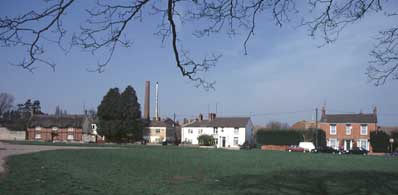
Deanshanger Village Green
As well as making horse shoes and tools he was commissioned to make an artificial iron leg.
For a while the Roberts family disappeared from local records. Then in 1781 a John Roberts came to Deanshanger from nearby Whittlebury.
When John died only 5 years later he was described in the register as being "Blacksmith of Daneshanger". His brother, Richard II carried on the smithy a Wicken and evidently took over Deanshanger, as records in the Passenham Poor Books show payments to him for ironwork in 1795 and 1797.
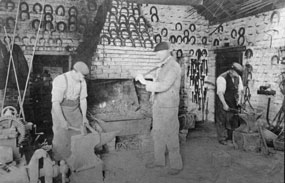
Roberts the Blacksmiths
Born in Wicken in 1785, he was married and all his children christened at Passenham. He appeared to have spent all his life in the parish and is therefore considered to be the first true Deanshanger Roberts.
In 1821 he purchased 2 cottages (where there now stands the Victorian foundry building) and established a blacksmiths shop.
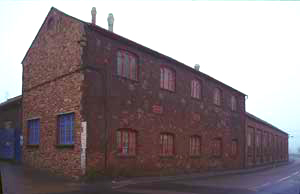
Click on one of the red window frames to see a close up view.
Richard III acquired the nickname Pistol Dick, due to his alleged apprenticeship with a Birmingham gunsmith during the Napoleonic Wars, although this has not actually been proven.
In 1843 the business was conveyed to his son, John, who was at that time described in factory documents as an "Ironfounder". In By 1847 the property had a become an "iron foundry worked by a small steam engine outside the building, and a Blacksmith Shop detached belonging".
John died 6 years later with debts of £163. The business was left to his widow, Caroline and eldest son, 17 year old Edwin to run.
They proved quite successful as by 1856 the business had developed into "a building used as an Iron factory, office, blacksmith shop and storeroom adjoining, with an engine house adjoining the factory. The engine in full work."
In 1859, aged only 23 years Edwin took full control.
He was soon able to expand the site by purchasing an extra acre of land, which included the Fox and Hounds inn situated behind the foundry. After this he acquired Malting or Factory Row, which consisted of a terrace of 7 cottages next to the factory. In the following year, 1866 he purchased a further 5 acres across the road.
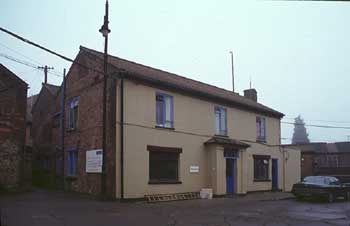
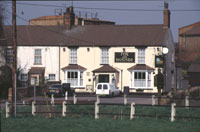
When the partnership became a limited company in 1890, it had assets of £37,000. Business had certainly diversified and the work carried out was described at this time as "agricultural, general and hydraulic engineering as well as iron and brass founding and millwrighting".
The associated business of Albert Roberts was incorporated and the firm was in addition allowed to carry out repairs to and to manufacture bicycles and other locomotive machinery. Also known as Deanshanger Iron Works and sometimes the Britannia Iron Works the firm flourished. In its heyday the business employed between 100 and 150 men including 30 apprentices.
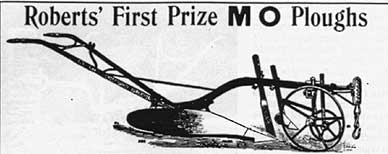
Some of the equipment was sold off to other local businesses, whilst the buildings remained and gradually decayed over the ensuing decade.
This period is remembered by some local residents who, as children, played near and sometimes on the site.
Interestingly an associated blacksmiths shop remained in business for some years after the closure of E & H Roberts.